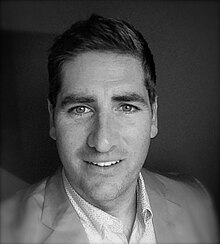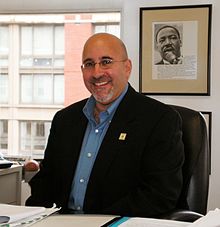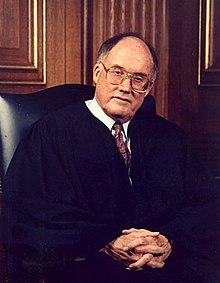
The Boy Scouts of America is one of the largest scouting organizations and one of the largest youth organizations in the United States, with about 762,000 youth participants. The BSA was founded in 1910, and since then, about 110 million Americans have participated in BSA programs. BSA is part of the international Scout Movement and became a founding member organization of the World Organization of the Scout Movement in 1922.
This is a list of notable events in the history of LGBT rights that took place in the year 1992.

LGBT rights opposition indicates the opposition to legal rights, proposed or enacted, for lesbian, gay, bisexual, and transgender (LGBT) people. Laws that LGBT rights opponents may be opposed to include civil unions or partnerships, LGBT parenting and adoption, military service, access to assisted reproductive technology, and access to sex reassignment surgery and hormone replacement therapy for transgender individuals.

Evan Wolfson is an attorney and gay rights advocate. He is the founder of Freedom to Marry, a group favoring same-sex marriage in the United States, serving as president until its 2015 victory and subsequent wind-down. Wolfson authored the book Why Marriage Matters: America, Equality, and Gay People's Right to Marry, which Time Out New York magazine called, "Perhaps the most important gay-marriage primer ever written". He was listed as one of Time magazine's 100 most influential people in the world. He has taught as an adjunct professor at Columbia Law School, Rutgers Law School, and Whittier Law School and argued before the Supreme Court in Boy Scouts of America v. Dale. He now teaches law and social change at Georgetown Law School and at Yale University; serves as a senior counsel at Dentons, the world's largest law firm; and primarily provides advice and assistance to other organizations and causes, in the United States and globally, that are seeking to adapt the lessons on "how to win" from the same-sex marriage movement.
The Boy Scouts of America (BSA), one of the largest private youth organizations in the United States, has policies which prohibit those who are not willing to subscribe to the BSA's Declaration of Religious Principle, which has been interpreted by some as banning atheists, and, until January 2014, prohibited all "known or avowed homosexuals", from membership in its Scouting program. The ban on adults who are "open or avowed homosexuals" from leadership positions was lifted in July 2015.

William Hillcourt, known within the Scouting movement as "Green Bar Bill", was an influential leader in the Boy Scouts of America (BSA) organization from 1927 to 1992. Hillcourt was a prolific writer and teacher in the areas of woodcraft, troop and patrol structure, and training; his written works include three editions of the BSA's official Boy Scout Handbook, with over 12.6 million copies printed, other Scouting-related books and numerous magazine articles. Hillcourt developed and promoted the American adaptation of the Wood Badge adult Scout leader training program.
Curran v. Mount Diablo Council of the Boy Scouts of America, 17 Cal.4th 670, 952 P.2d 218, 72 Cal.Rptr.2d 410 (1998), was a landmark case which upheld the right of a private organization in California to not allow new members on the basis of their sexual orientation. Its companion case was Randall v. Orange County Council, 17 Cal.4th 736, 952 P.2d 261, 72 Cal.Rptr.2d 453 (1998).
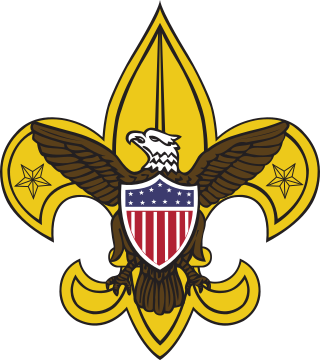
Scouts BSA is the flagship membership level of the Boy Scouts of America (BSA) for boys and girls between the ages of typically 11 and 17. It provides youth training in character, citizenship, and mental and personal fitness. Scouts are expected to develop personal religious values, learn the principles of American heritage and government, and acquire skills to become successful adults.
Evans v. Berkeley was a court case which upheld the right of governmental entities in California to withhold support from non-profit organizations that practice discrimination on the basis of sexual orientation.

There are various controversies and conflicts that involve the Scouting movement. Scouting has sometimes become entangled in social controversies such as in nationalist resistance movements in India. Scouting was introduced to Africa by British officials as an instrument of colonial authority but became a subversive challenge to the legitimacy of British imperialism as Scouting fostered solidarity amongst African Scouts. There are also controversies and challenges within the Scout Movement itself such as current efforts to turn Scouts Canada into a democratic organization.
Hurley v. Irish American Gay, Lesbian, and Bisexual Group of Boston, 515 U.S. 557 (1995), was a landmark decision of the US Supreme Court regarding free speech rights, specifically the rights of groups to determine what message their activities convey to the public. The Court ruled that private organizations, even if they were planning on and had permits for a public demonstration, were permitted to exclude groups if those groups presented a message contrary to the one the organizing group wanted to convey. Addressing the specific issues of the case, the Court found that private citizens organizing a public demonstration may not be compelled by the state to include groups who impart a message the organizers do not want to be presented by their demonstration, even if the intent of the state was to prevent discrimination.
Roberts v. United States Jaycees, 468 U.S. 609 (1984), was a decision of the Supreme Court of the United States overturning the United States Court of Appeals for the Eighth Circuit's application of a Minnesota antidiscrimination law. The case established what was at the time the prevailing framework for analyzing claims of associative freedom, holding that the Minneapolis branch of the United States Jaycees could not bar women from becoming voting members.

Cradle of Liberty Council, Inc., Boy Scouts of America, v. City of Philadelphia also known as Cradle of Liberty Council v. City of Philadelphia, [2:08-cv-02429RB] is a U.S. Court case involving the Cradle of Liberty Council versus the City of Philadelphia. The case was filed on May 23, 2008, in the United States District Court for the Eastern District of Pennsylvania. Judge Ronald L. Buckwalter presided over the case. The Boy Scouts were represented by Drinker Biddle & Reath. The case ended with the court ruling in favor of the Boy Scouts of America. The Cradle of Liberty Council Council is also entitled to collect $877,000 of legal costs from the city's unlawful action.

Lesbian, gay, bisexual, and transgender (LGBT) persons in New Jersey have the same rights as non-LGBT people. LGBT persons in New Jersey enjoy strong protections from discrimination, and have had the right to marry since October 21, 2013.
Christian Legal Society v. Martinez, 561 U.S. 661 (2010), is a United States Supreme Court case in which the Court upheld, against a First Amendment challenge, the policy of the University of California, Hastings College of the Law, governing official recognition of student groups, which required the groups to accept all students regardless of their status or beliefs in order to obtain recognition.

Catherine "Kay" N. Pollard was the first female Scoutmaster in the Boy Scouts of America (BSA). She led Boy Scout Troop 13 in Milford, Connecticut, from 1973 to 1975 but the BSA refused to recognize her as a Scoutmaster until 1988.
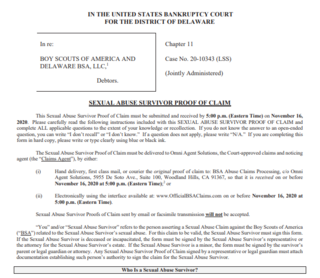
The Boy Scouts of America (BSA) is one of the largest youth organizations in the United States, with 2.3 million youth members and approximately 889,000 adult volunteers. In 1979 there were over 5 million youths in BSA.
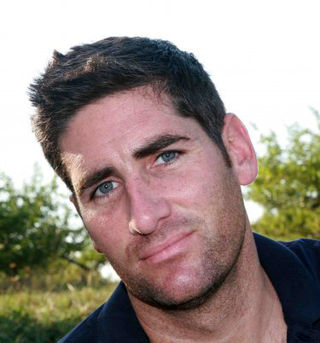
James Dale is an American gay rights activist. He is best known for his role in Boy Scouts of America v. Dale, the landmark US Supreme Court case that challenged the Boy Scouts of America (BSA) policy of excluding homosexuals from being scout leaders.

Scout's Honor is a 2001 American documentary film directed by Tom Shepard and written by Meg Moritz. Appearing as themselves in the documentary are Steven Cozza, James Dale, Tim Curran, Dave Rice and Scott and Jeanette Cozza. The film examines the Boy Scouts of Americas (BSA) policy against gays in the organization. It focuses on Steve Cozza and Dave Rice who join together to fight against the policy, and also relates the stories of two gay men who were expelled from the organization, and fought back in the courts. The film premiered at the Sundance Film Festival on January 25, 2001, where it won an Audience Award for Best Documentary, and director Tom Shepard won a Freedom of Expression Award. The documentary had additional screenings at several other film festivals where it received multiple awards, and it also received a GLAAD Media Award for Outstanding Documentary. The film aired nationally on the PBS series POV on June 19, 2001.

